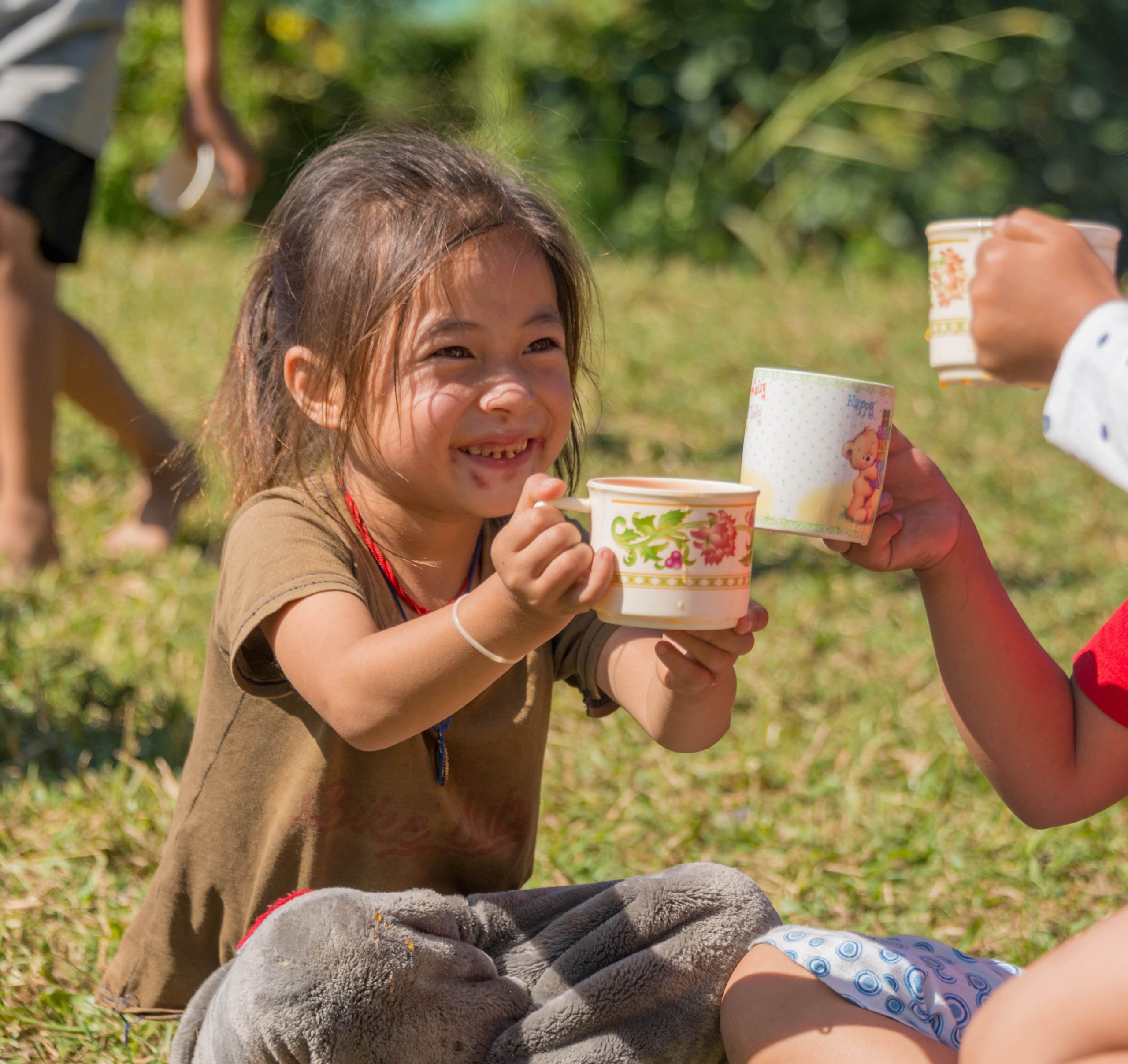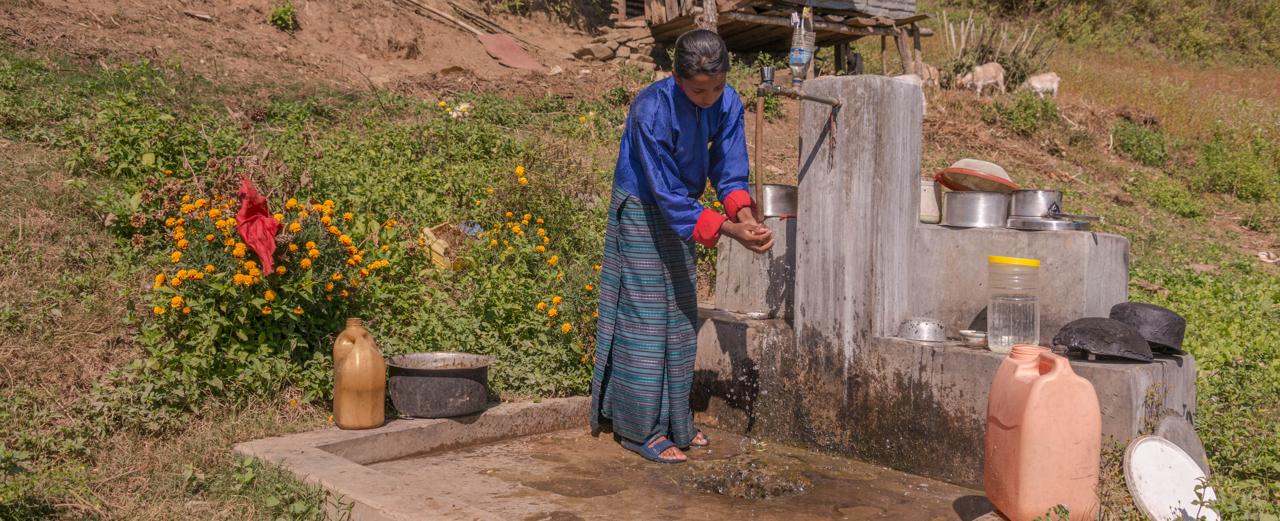 Water for a better future
Water for a better future
Clean drinking water for children in Bhutan
When people talk about Bhutan, the small Himalayan country, most of them say: "Aren't they the ones that are all about happiness?" And indeed, Bhutan has a very special characteristic: The country measures its development by what is known as Gross National Happiness. Of course, economic development also plays a role here, but the main thing is that it should be slow and fair. Environmental protection is also considered to be of paramount importance. Bhutan is the only country in the world that sequesters more CO2 than it emits (Yangka, Rauland and Newman, 2018). Children learn to protect their environment from an early age. But although Bhutan is strongly committed to environmental protection, the population is suffering from the consequences of climate change. The country is increasingly struggling with water shortages.
Necessity
Drinking water for school children in Bhutan.
Activity
Together with the village community, the local partner organisation installs water tanks, water pipes and solar-powered water filters at schools.
Countable effort
Number of days clean drinking water can be provided and number of water tanks with filter systems that can be installed in schools.
Result
School children have access to clean drinking water. They fall ill less often and can go to school more regularly.
Systemic effect
The health of children in Bhutan improves. And so do their educational and future prospects.
Background
Much has happened in Bhutan since the introduction of Gross National Happiness: Poverty has fallen, more and more children can attend school and health care has improved. Nevertheless, Bhutan is still one of the so-called "least developed countries". Especially in rural areas, many people live in great poverty (UNDP, 2020). In 2017, only 27.6 per cent of the rural population had access to clean drinking water (The Global Economy, 2017). Many villages do not have their own water sources. Periods of drought and flooding caused by climate change make water supply more difficult (UNDP, 2019). In 1984, the national school health programme was introduced. Among other things, drinking water is to be made available in schools. However, many schools are still facing major challenges: One school in five simply does not have access to clean drinking water. In the remaining rural schools, water quality is often inadequate (UNICEF, 2020). It is not only children's health that suffers: Due to diseases caused by unclean water, many children cannot attend school or are severely affected in their learning (WHO, JMP, UNICEF, 2018).
The good deed
Thanks to your good deed today, school children in rural areas will get clean drinking water. The local partner organisation of the association Nomadenhilfe e.V. is installing water tanks, water pipes and solar-powered water filters in the schools together with the villagers. In addition, the organisation runs workshops to inform the pupils and their families about the subject of clean water and hygiene. At each school, water experts are trained to take care of the facilities over the long term. In this way, the good deed can ensure a sustainable drinking water supply and reduce the risk of disease. The local water supply enables the children to learn continuously and in a concentrated way - and thus to have better opportunities for the future.

AboutBhutan
Thimphu
763,090
US$ 8,609
Placed 134th out of 189
Half of Bhutan, the "Land of the Thunder Dragon", consists of nature reserves. For birthdays, many Bhutanese people plant a tree as a gift.
About the organization and further information
Nomads Help Association
Website
Further information and source
- Dragbaek Schmidt J. (Hg.), 2017. Development Challenges in Bhutan: Perspectives on Inequality and Gross National Happiness, Contemporary South Asian Studies, Aalborg.
- Ha Vinh Tho, 2014. Grundrecht auf Glück – Bhutans Vorbild für ein gelingendes Miteinander, Nymphenburger Verlag, München.
- The Global Economy, 2017. Bhutan, Access to Drinking Water, Rural. UNDP, 2020. About Bhutan, New York.
- UNDP, 2019. Coming to Grips with Water: How Bhutan is Overcoming Water Challenges Magnified by the Onset of Climate Change, New York.
- UNICEF, 2020. WASH: Water, Sanitation and Hygiene, New York.
- UNICEF/WHO, 2018. Drinking Water, Sanitation and Hygiene in Schools – Global Baseline Report 2018, New York/Genf.
- Yangka, D. et al., 2018. Carbon neutral policy in action: the case of Bhutan, Climate Policy 19 (6), Taylor & Francis, Abingdon.




